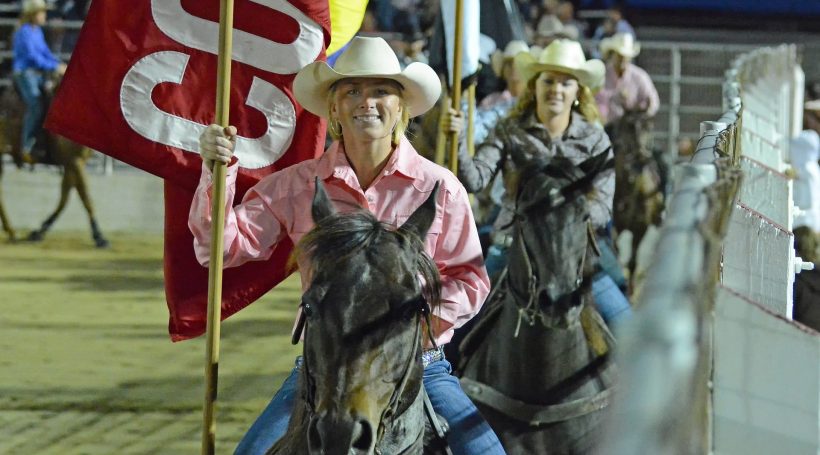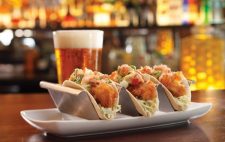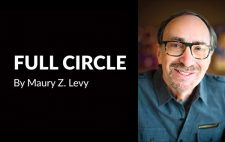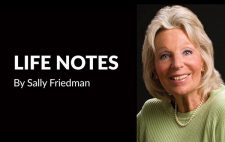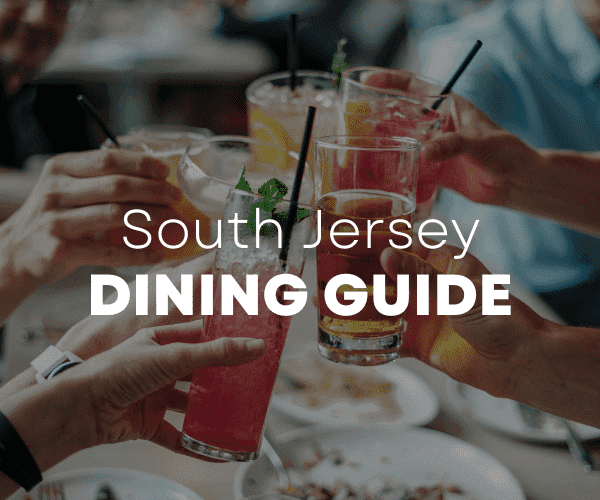When the final bell rings at Northern Burlington Regional High School, 16-year-old Deanna D’Imperio of Columbus knows her day is far from over. There’s homework, of course, plus family time, maybe some household chores and texting friends – standard fare for most high school sophomores. But D’Imperio’s day veers from the typical teenage existence when she heads into her backyard to see Sonny.
Sonny is the horse D’Imperio rides when she competes in rodeo events. She tries to ride him every evening to keep her skills honed, although schoolwork sometimes gets in the way. Most of D’Imperio’s peers have no idea she excels at calf roping and barrel racing, in addition to academics.
“The first day of school, you always tell the class what your life is like,” D’Imperio says. “When I tell, it’s like, ‘Whoa, I did not expect that from her,’ because I dress the same as everyone else and do the same activities.”
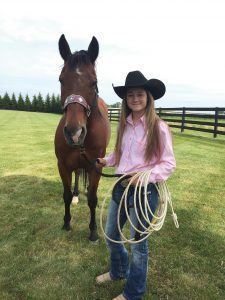
Deanna D’Imperio has been riding horses since she was 3 years old and now competes in calf roping
As a freshman, D’Imperio joined the high school soccer and lacrosse teams, but this school year, she joined the Pennsylvania High School Rodeo Association and doesn’t have time for other sports. Most weekends, she competes in Pennsylvania, with a smattering of events held in South Jersey. (New Jersey doesn’t have its own rodeo association for high schoolers.)
D’Imperio, who has been riding horses since she was 3, began barrel racing when she was 4. She didn’t begin calf roping until last year, but the sport has taken hold.
“I like the roping more; it’s more ‘me,’” D’Imperio says. “I’m not just depending on my horse to run a certain speed, I also have to catch the calf. So it’s both of us.”
D’Imperio comes from a long line of rodeo competitors. Her great uncle and grandfather started competing in the 1950s, and her grandmother was a barrel racer. In the 1980s, her father Troy began competing in rodeos, which he still does on a part-time basis. D’Imperio says she can’t imagine a life without horses, although she may pursue a career in business, not rodeo.
“I will always have it in my life, but I won’t make it my whole life,” she says.
The young athlete identifies as a cowgirl, as do many other South Jersey women. Their criteria for what makes them a cowgirl may vary, but they all share a lifelong passion for horses.
Although many cowgirls may have a stereotypical look – especially at rodeo events, when they’re required to wear a hat, boots and a long-sleeved button-down shirt – there’s more to being a cowgirl than just having the right aesthetic.
“To be a cowboy or a cowgirl, you actually have to do more than own a hat and horse,” says Grant Harris, 62, who runs Cowtown Rodeo in Pilesgrove. “To actually be comfortable on a horse, doing a lot of different work on a horse – and all in association with cattle – goes a long way toward respecting someone when they call themselves a cowgirl.”
Cowgirls don’t need to compete in rodeo events, according to Harris; they just need to work with horses and cattle. When asked, the first cowgirl whom Harris can think of is his daughter, Katy Harris Griscom, who works the family farm.
“While she’s not a rodeo contestant, when you say ‘cowgirl,’ she comes to mind,” Harris says.
Griscom, 33, of Woodstown, has been around horses her whole life. “I was riding since I could walk,” she says.
Her family has been in the South Jersey agriculture and equine industries since the 1700s. (Her ancestors drove cattle to Valley Forge for the Continental Army during the Revolutionary War, according to Harris.) Her predecessors also founded Cowtown Rodeo in 1929. Griscom helps her father with rodeo operations but spends the bulk of her time on her farm, on horseback.
“You don’t get too many girls around here that do what I do, being on horseback every day in the summertime,” Griscom says. “A lot of people today do it on four-wheelers or Gators. We do everything on horseback. It’s hard work, being on a horse and working all day.”
Although it’s challenging, Griscom embraces the cowgirl lifestyle.
“When you can say you love your job, it’s pretty good,” Griscom adds. “You’ve got to be tough to be able to take on anything.”
Griscom is passing on her love of horses to her 3-year-old son, who has his own pony. “He rides all the time,” she says. “It’s in his genes.”
Jennifer Oberg of Mullica Hill works full-time as an outrider at Harrah’s Philadelphia Casino & Racetrack. She also gives horseback-riding lessons to children and adults.
“Pretty much my whole occupation is horses,” says Oberg, 43. “I just think it’s a lifestyle – competing with your horse, being a team with your horse and working with horses every day. Horse people tend to eat, sleep and breathe horses.”
In 2009, Oberg added rodeo barrel-racing to her repertoire.
“Honestly, I went as a spectator a lot, and it looked like an interesting new venture for me,” Oberg says. “I had some friends who barrel-raced. I do it part-time – it’s more of a hobby.”
Oberg started taking riding lessons when she was 5 and owned her first horse at age 6, but some people who compete at rodeo events don’t begin until much later.
“There’s a lot of competitive barrel racers who probably never sat on a horse until they were an adult,” Harris says. “Starting young certainly gives you a leg up. But I’ve known people who were adults – middle-aged – who took up horseback riding and weren’t satisfied with being ‘ordinary,’ for lack of a better word, who practiced and improved their talents and skills to the point where they could become competitive. I can’t say it’s common, but it’s not out of the ordinary, either.”
If you’d like to release your inner cowgirl, getting riding lessons is the logical first step. Once you’ve become proficient, the steps you choose to take next are up to you, depending upon your personal interpretation of the cowgirl lifestyle.
“I would suggest maybe shadowing someone like a farmer or rancher or someone who runs the rodeo business,” Griscom says.
If you plan to own horses, keep in mind that it will drastically alter your lifestyle.
“Horse people generally don’t get vacations,” Oberg says, “because the horses have to get fed twice a day and the stalls have to get cleaned.”
Cowgirls have a love for all horses but often get attached to a particular animal. For D’Imperio, it’s Sonny. Griscom, who owns 30 horses, favors two: Flubber and Cruz. And Oberg can’t say enough about Boogie Man, the first horse she trained for barrel racing.
“He gives me 110 percent every time, and I can’t ask for more than that. His personality is unbelievable,” Oberg says. “He will be with me forever. They say you get one good horse in a lifetime. This is my once-in-a-lifetime.”
For many cowgirls, it can take years to reach the level of proficiency on horseback that they desire, but they enjoy the ride, so to speak.
“If you’re doing everything correctly, you and the horse are almost one,” Harris says. “To get to the level that a lot of these girls are, it’s not an occupation, it’s a passion. It’s not what they do, it’s what they are.”

